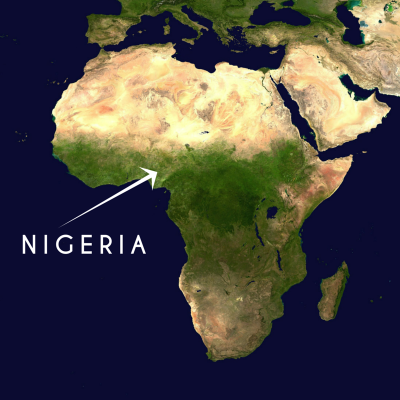Used Shoes For Sale in Nigeria
The used shoes you donate today could make their way to Africa. Here’s how (and why) that happens:
The Federal Republic of Nigeria (or simply Nigeria, as it is commonly referred to) is a country in West Africa. It is 356,669 square miles in size, making it about 1.3 times bigger than the US state of Texas, or roughly half as big as the US state of Alaska. It is bordered by the Atlantic Ocean to the south, Benin to the west, Niger to the north, and Cameroon and Chad to the east. Its population is estimated to be 154 million, with a population density of nearly 200 people per square mile.
As for Nigeria’s economy, according to Wikipedia,
Nigeria is classified as a mixed economy emerging market, and has already reached lower middle income status according to the World Bank, with its abundant supply of natural resources, well-developed financial, legal, communications, transport sectors and stock exchange (the Nigerian Stock Exchange), which is the second largest in Africa. (source)
While Nigeria’s economy is growing and developing, imported used clothing is still preferable to new. Used shoes and clothing are a hot commodity in local markets where they sell for less than new products and are higher quality. In the center of the country lies the city Abuja, where the Dutsen Alhaji Monday market takes place. Here the “the demand for fairly used clothes and shoes is far greater than that of other goods” (source). Said one market-goer:
“These clothes, though they are fairly used, they are of better quality than the new ones and when you put them on, nobody would know that they are second hand materials […] they are also cheaper and last longer compared to the brand new ones.” (source)
But the used shoes and clothing this person bought weren’t manufactured in her country, or likely even on the African continent. So where did these used shoes and clothing come from? Would it surprise you to know that much of it comes from the US? It did.

What happens is this: Thrift stores and charitable institutions in the US regularly receive more donations than they can sell. This excess, sometimes called mixed rags, and sometimes called credential clothing is baled into enormous half ton (1000 lb) bales and sent to a warehouse. From the warehouse the bales are loaded onto shipping containers (which themselves weigh 40,000 lbs). They are then shipped overseas to developing nations like Nigeria, where they are sold in local markets. This process does several things: It boosts local economies in the recipient nations. It keeps usable, good quality clothing and used shoes out of landfills, and it provides comfortable, affordable options to people who need it.
Remember: Textiles are not trash. Always donate gently used shoes and clothing items. Worn, torn, and/or stained items can be recycled through textile recyclers. Contact your local waste management company or community outreach program for more details.
.








